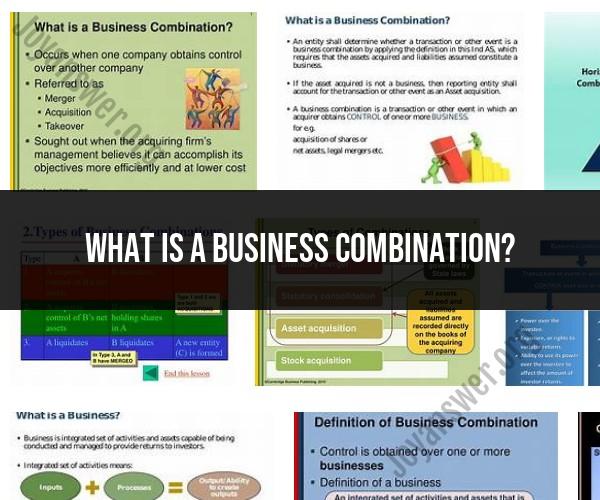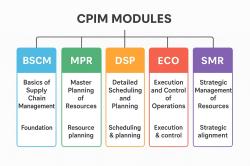What is a business combination?
A business combination is a term used in accounting and finance to describe a transaction in which two or more separate businesses or entities come together to form a single entity or operate as a single economic unit. Business combinations typically take the form of mergers or acquisitions, and they can involve various types of business entities, including corporations, partnerships, or other forms of organizations.
Here are the two primary ways in which business combinations occur:
Mergers: A merger is a business combination in which two or more companies merge their operations and assets to create a new entity or combine them under one existing entity. In a merger, the participating companies usually combine their resources, management teams, and operations to achieve specific strategic goals. Mergers can be categorized into several types, including:
Horizontal Merger: This occurs when two companies in the same industry and at the same stage of the production process merge. For example, if two competing automobile manufacturers merge, it's considered a horizontal merger.
Vertical Merger: This involves the combination of companies in the same industry but at different stages of the production or supply chain. For instance, if a car manufacturer acquires a tire manufacturer, it's a vertical merger.
Conglomerate Merger: This type of merger involves companies from different industries or with unrelated business activities. Conglomerate mergers are often driven by diversification strategies.
Acquisitions: An acquisition occurs when one company (the acquirer) purchases the assets or ownership interests (such as shares or stock) of another company (the target). Acquisitions can be friendly, where both parties agree to the transaction, or hostile, where the target company resists the takeover. Acquisitions can also be partial or complete, depending on the percentage of ownership acquired by the acquiring company.
Asset Acquisition: In an asset acquisition, the acquiring company purchases specific assets and liabilities of the target company, rather than acquiring the entire business.
Stock or Share Acquisition: In a stock or share acquisition, the acquiring company buys the ownership shares of the target company, which often results in the target becoming a wholly-owned subsidiary of the acquirer.
Business combinations are complex financial transactions that can have significant implications for the companies involved, their shareholders, employees, and stakeholders. They are often driven by strategic goals, such as expanding market presence, achieving cost efficiencies, diversifying product offerings, or accessing new technologies and resources. Proper planning, due diligence, and careful consideration of legal, financial, and operational factors are essential when executing a business combination. Additionally, regulatory authorities in many jurisdictions oversee and regulate these transactions to ensure fair competition and protect the interests of consumers and investors.













